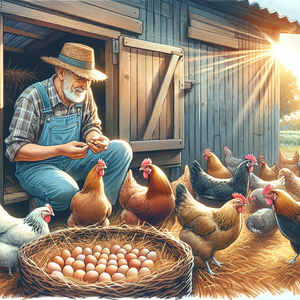EPL Fan Culture: The Heartbeat of English Football

At the heart of each EPL club lies a unique fan community, characterized by shared experiences, traditions, and a deep-rooted connection to their club. From the raucous chants in the stands to the sea of club colors that fill stadiums on match days, this sense of belonging is palpable. Clubs like Liverpool and Manchester United boast fan bases that span generations, with families passing down their allegiance like a cherished heirloom. Take Liverpool's "You'll Never Walk Alone," for instance. This anthem, sung loudly by supporters at Anfield before every match, not only unites fans but also serves as a powerful reminder of the solidarity and hope inherent in football. The emotional bond created through such traditions fuels loyalty and fosters a sense of identity among supporters. Similarly, Manchester United fans proudly chant "Glory Glory Man United," echoing the club's history and achievements across decades. These anthems become part of the fabric of the fan experience, enhancing the connection between supporters and their teams.
Rivalries and Their Impact on Culture
Rivalries are another cornerstone of EPL fan culture, with matches between clubs like Arsenal and Tottenham Hotspur or Liverpool and Manchester United often seen as more than just games—they are battles for pride, history, and bragging rights. These rivalries ignite passion and intensity, drawing in not only die-hard fans but also casual viewers who are captivated by the stakes involved. The North West Derby between Liverpool and Manchester United exemplifies this phenomenon. The fierce competition between the two clubs has led to an electric atmosphere both on and off the pitch, with fans engaging in friendly banter and sometimes heated exchanges. Such rivalries amplify the excitement surrounding the league and contribute to the rich narrative of English football. The anticipation of a derby match transforms communities, as fans gather in pubs, homes, and public spaces to unite over a common cause, demonstrating how football can serve as a focal point for community bonding.
Social Media: A Double-Edged Sword
In recent years, social media has transformed the way fan culture is expressed and experienced. Platforms like Twitter, Instagram, and TikTok allow fans to share their thoughts, experiences, and creative content in real-time. This digital interaction not only enhances the sense of community among supporters but also enables clubs to engage with their fan base on a global scale. However, the rise of social media has also introduced challenges. The rapid spread of information can lead to misinformation and heated debates, particularly regarding player transfers, managerial decisions, and match outcomes. Online trolling and hostility can blur the lines between passionate discourse and toxic behavior. For instance, heated exchanges on Twitter often spiral into personal attacks, detracting from the sport's passionate spirit. Nonetheless, the ability to connect with fellow fans and share moments from the game has undeniably enriched the EPL fan experience. Clubs have embraced this change, using social media to foster engagement, announce news, and even celebrate fan contributions, showcasing the dynamic nature of modern fandom.
Global Reach Meets Local Tradition
As the EPL continues to expand its global reach, with fans from Asia, Africa, and the Americas tuning in to watch matches, the challenge lies in balancing local traditions with international appeal. Clubs have begun to adapt their marketing strategies to cater to a diverse audience while attempting to maintain the essence of what makes their fan culture unique. For example, Manchester City has embraced its global fan base by hosting events and activities in various countries, allowing overseas supporters to feel connected to the club. Such initiatives can bridge gaps between local and global fans, fostering a sense of unity. Yet, these efforts often raise questions about the dilution of local traditions. As clubs navigate this landscape, the challenge remains: How can they honor their heritage while embracing a global audience? The introduction of local fan clubs worldwide and the promotion of cultural exchanges through friendly matches are steps in the right direction, helping to maintain a balance between global outreach and local authenticity.
EPL fan culture is the heartbeat of English football, representing a rich tapestry of traditions, rivalries, and communal experiences. It is a culture that thrives on passion, loyalty, and the shared love of the game. As the EPL continues to evolve in the age of social media and globalization, it is essential to recognize the importance of nurturing local traditions while embracing the diverse fan base that supports these clubs. Ultimately, the vibrant fan culture within the EPL not only enhances the experience of watching football but also serves as a powerful reminder of the community and connections that lie at the heart of the sport. The future of English football will depend on how clubs continue to engage with their supporters, ensuring that the passion of fans remains a central aspect of the beautiful game.
Sports Marketing Manager
Premier League clubs, sports marketing agencies, and sports management firms
Job Description
Develop and implement marketing strategies to enhance fan engagement and promote club events.
Utilize social media platforms to create compelling content that resonates with diverse fan bases.
Collaborate with cross-functional teams to execute promotional campaigns and analyze their effectiveness.
Skills/Qualifications
Strong understanding of digital marketing analytics
Experience in sports-related marketing
Proficiency in social media management tools
Fan Engagement Specialist
Football clubs, sports organizations, and event management companies
Job Description
Design and execute programs that foster community involvement and enhance the fan experience at matches and events.
Analyze fan feedback and engagement metrics to refine strategies and improve club offerings.
Coordinate fan events, including meet-and-greets with players and community outreach initiatives.
Skills/Qualifications
Excellent communication and interpersonal skills
Experience in event planning
Background in customer service
Social Media Coordinator for Sports Teams
Premier League clubs, sports marketing agencies, and media companies focused on sports
Job Description
Manage daily social media content across various platforms, ensuring alignment with club branding and messaging.
Engage with fans through real-time interactions during matches and events to enhance the online community.
Monitor social media trends and develop creative campaigns that leverage popular culture and current events.
Skills/Qualifications
Strong writing and editing skills
Familiarity with analytics tools like Google Analytics and social media insights
Creative approach to content creation
Sports Data Analyst
Football clubs, sports analytics firms, and consultancy agencies specializing in sports
Job Description
Analyze match statistics and fan engagement data to provide insights that support marketing and operational decisions.
Create reports that track performance metrics, fan demographics, and engagement trends.
Collaborate with marketing and sales teams to develop data-driven strategies for fan outreach.
Skills/Qualifications
Proficiency in data analysis software (e.g., SQL, Excel)
Strong analytical thinking
Experience with data visualization tools
Community Relations Manager for Football Clubs
Premier League clubs, non-profit organizations, and community-focused initiatives
Job Description
Develop and maintain relationships with local community organizations and stakeholders to promote the club’s initiatives.
Create outreach programs that align with the club’s values and strengthen ties with local fans.
Organize community events and charitable activities, enhancing the club’s public image and fostering loyalty.
Skills/Qualifications
Strong networking abilities
Experience in public relations or community engagement
Passion for sports and community service


